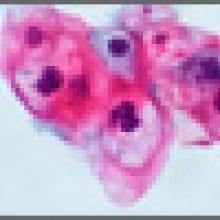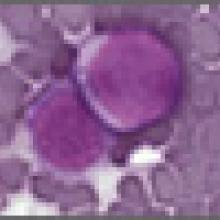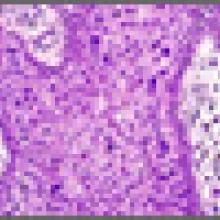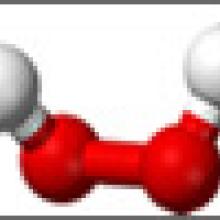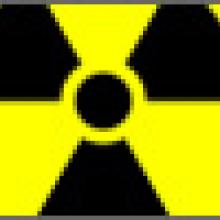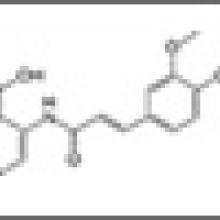Newsroom
12/16/2010
The human papilloma virus (HPV) has recently come to national attention with the advent of the HPV vaccine, which is now in use both in the U.S. and abroad. Although the vaccine has largely been marketed as a means of preventing cervical cancer, some strains of HPV are also associated with an… more
12/16/2010
Advanced melanoma poses a high risk of developing resistance to anti-cancer drugs and frequently spreads through the body via a process called metastasis. For this reason, melanoma is the most deadly of the skin cancers. Researchers at the Wistar Institute have been studying the mechanism by which… more
12/15/2010
Recently, researchers have discovered beta-catenin as a new target for Mixed Lineage Leukemia (MLL) treatment. This form of leukemia is caused by mutations in the MLL gene and causes approximately 70% of infant leukaemias and 10% of adult acute leukemias. With currently available therapies, only 50… more
12/15/2010
Melanoma is a particularly aggressive type of skin cancer. The severity of the condition is marked by its tendency to spread throughout the body in a process called metastasis. Before melanoma cells achieve this ability, however, they must first obtain a blood supply, which provides oxygen and… more
12/14/2010
In order to grow, tumors need a steady supply of oxygen and nutrients. Without a blood supply to provide these, they can only grow to a small size. 'Successful' tumors have a way of making the body form new blood vessels via the process called angiogenesis. Blocking angiogenesis is the goal of many… more
12/14/2010
Fruits and vegetables are key sources of nutrients, and they are essential for a healthy diet. These foods alone, however, do not appear to be sufficient to prevent cancer, according to an analysis conducted at Oxford University. Researchers reviewed the results of studies addressing the… more
12/14/2010
Mesothelioma is a cancer of the lining of the body cavities. Although this rare disease is usually linked to exposure to asbestos, new research suggests that the mineral erionite may also pose a risk. Erionite originates in volcanic ash, but natural changes it undergoes on the Earth’s surface cause… more
12/10/2010
Platinum-based drugs have been used in chemotherapy for over 30 years. Platinum interferes with the synthesis and transcription of DNA, which limits the ability of cancer cells to grow and reproduce. These drugs, however, also pose a risk to healthy tissue and can have severe side effects.… more
12/9/2010
Colorectal cancer is the third most common type of cancer in both men and women. For this reason, screening has become increasingly common, and researchers have been working to identify areas to target for treatment. Over 80% of colon cancers overexpress an enzyme called focal adhesion kinase (FAK… more
12/9/2010
Celecoxib (brand name Celebrex®) is currently used as a pain medication and is frequently used to treat arthritis, but new research published in the Journal of the National Cancer Institute indicates the drug may be effective at preventing the development of cutaneous squamous cell carcinomas (SCCs… more
12/9/2010
As cancer cells grow, they produce chemicals called reactive oxygen species (ROS), which cause cellular stress and pose a physical threat to the cancer cells’ survival. For this reason, the cells also generate an antioxidant system, which provides protection from the damage caused by ROS.… more
12/8/2010
Aspirin has become a popular treatment for more than just aches and pains. Studies showing a relationship between daily doses of the drug and a reduced risk of heart attacks brought new attention to an old drug. This positive effect, however, was accompanied by an important negative: an increased… more
12/8/2010
Radiation therapy is used to treat a variety of malignancies. In addition to its curative potential, however, radiation is often a source of significant side effects. A goal of treatment is to keep treatment time to a minimum, without reducing the benefits. A study performed at the Fox Chase Cancer… more
12/8/2010
Ultraviolet (UV) light is a known cancer-causing agent. By damaging cellular DNA, UV light increases the risk of cells developing mutations leading to cancer. New research out of the Medical College of Georgia, however, indicates that UV light may not only create cancer cells; it may also help them… more
12/4/2010
The non-toxic oral drug tranilast (brand name Rizaben®) is used to treat asthma in both Japan and South Korea. The drug also has known anti-cancer properties. Canadian researchers demonstrated that tranilast is capable of blocking breast cancer stem cells from forming colonies and spreading in a… more
12/3/2010
Viruses are no longer simply the bad guy in the spectrum of human health. In fact, certain viruses can be used to selectively destroy cancer cells. Researchers at Boston University School of Medicine have discovered that the vesicular stomatitis virus (VSV) works to kill cancer cells by interfering… more
12/3/2010
Ovarian cancer is the number one killer of women with gynecological cancers. One of the main reasons for this is ovarian cancer cells often become resistant to standard chemotherapy treaments, which work by inducing cell death (apoptosis). A drug currently being studied for its anti-cancer effects… more
12/3/2010
Thomas Jefferson University researchers have shown that a 'Western-type' diet, high in fat and cholesterol, can increase the risk of prostate cancer and accelerate cancer growth and progression. The TRAMP mice used are pre-disposed to getting prostate cancer but the mice fed a fat/cholesterol rich… more
12/2/2010
A new brain cancer vaccine has been developed by researchers at the University of Pittsburgh and at Wake Forest University. The vaccine is targeted at gliomas and will be tested in a small trial to see if it can prevent the recurrence of low-grade gliomas. Because gliomas of this type often recur… more
11/30/2010
Stem cells are capable of changing into different types of adult cells and are being studied for their potential use in the treatment of diseases. Research performed in Israel and the U.S. raises warning flags about the use of transplanted stem cells in humans. The researchers examined 66 human… more

